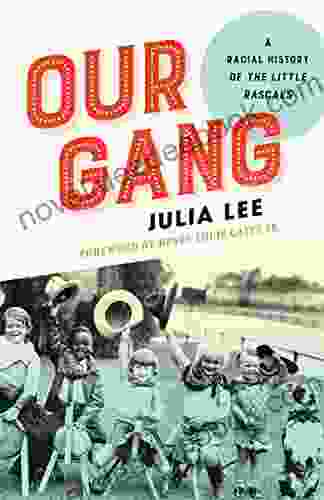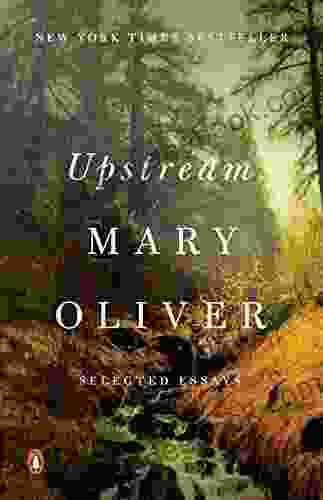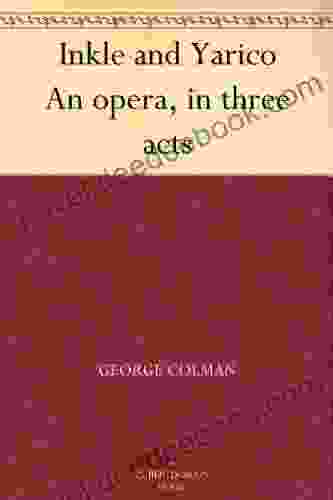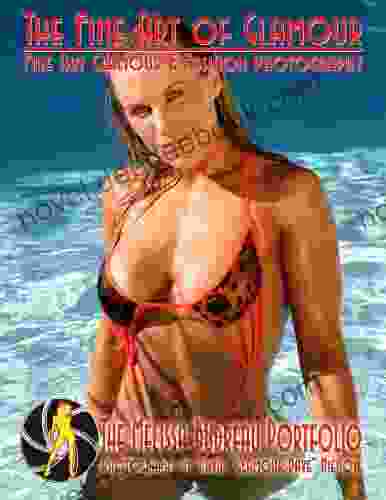The Little Rascals: A Racial History

The Little Rascals is a classic American comedy series that has been enjoyed by generations of fans. The show's simple premise - a group of young children getting into all sorts of mischief - has resonated with audiences of all ages. However, the show's racial history is complex and problematic.
4.5 out of 5
| Language | : | English |
| File size | : | 4378 KB |
| Text-to-Speech | : | Enabled |
| Screen Reader | : | Supported |
| Enhanced typesetting | : | Enabled |
| Word Wise | : | Enabled |
| Print length | : | 328 pages |
The Little Rascals was created in the early 1920s by Hal Roach. The series was originally released as a series of short films, and it quickly became one of the most popular comedies of the era. In 1932, the Little Rascals made the transition to feature films, and they continued to be a popular draw for audiences throughout the 1930s and 1940s.
From the very beginning, the Little Rascals was a racially segregated show. The only black actors who appeared in the series were cast in stereotypical roles, such as servants, janitors, and criminals. This was a common practice in Hollywood at the time, and it reflected the prevailing attitudes about race in American society.
As the Little Rascals evolved over the years, its racial representation became more complex. In the 1950s, the series began to feature more black actors in less stereotypical roles. However, these actors were still often relegated to the background, and they rarely had any meaningful storylines.
In the 1970s, the Little Rascals was reimagined as a television series. This new version of the show featured a more diverse cast, and it attempted to address some of the racial issues that had been present in the earlier incarnations of the series. However, the show still fell short of fully representing the diversity of American society.
In recent years, there have been efforts to make the Little Rascals more inclusive. In 2014, a new film version of the series was released that featured a multiracial cast. This film was met with mixed reviews, but it was a step in the right direction.
The racial history of the Little Rascals is a complex and troubling one. The show has been a reflection of the prevailing attitudes about race in American society, and it has often perpetuated harmful stereotypes. However, the show has also evolved over time, and it has made some progress in terms of racial representation. With continued effort, the Little Rascals can become a more inclusive and representative show that reflects the diversity of American society.
The Little Rascals and Blackface
One of the most controversial aspects of the Little Rascals' racial history is the use of blackface. Blackface is a form of theatrical makeup that is used to portray a black person. It has a long and racist history, and it is considered to be deeply offensive by many people.
The Little Rascals used blackface in several episodes of the series. In these episodes, white actors wore blackface to portray black characters. This was a common practice in Hollywood at the time, but it is now considered to be unacceptable.
The use of blackface in the Little Rascals is particularly problematic because it perpetuates the stereotype of the black person as a buffoon. In these episodes, the black characters are often portrayed as lazy, stupid, and untrustworthy. This is a harmful and inaccurate stereotype, and it has no place in a children's show.
The Little Rascals has been criticized for its use of blackface for many years. In 1994, the series was pulled from syndication for a time due to concerns about the racist content. In recent years, there have been renewed calls to remove the blackface episodes from circulation.
The use of blackface in the Little Rascals is a reminder of the racist attitudes that were prevalent in American society in the early 20th century. It is important to remember this history so that we can avoid repeating the mistakes of the past.
The Little Rascals and the Civil Rights Movement
The Civil Rights Movement of the 1950s and 1960s had a significant impact on the Little Rascals. As the country began to move towards racial equality, the show began to reflect these changes.
In 1955, the Little Rascals featured its first black actor, Billie Thomas. Thomas played the role of Froggy, a young boy who was friends with the other Rascals. This was a significant step forward for the show, and it helped to break down racial barriers in children's television.
However, the Little Rascals still had a long way to go in terms of racial representation. The show continued to feature stereotypical black characters, and it often shied away from addressing racial issues.
In 1968, the Little Rascals was reimagined as a television series. This new version of the show featured a more diverse cast, and it attempted to address some of the racial issues that had been present in the earlier incarnations of the series.
The television series featured a number of black actors in prominent roles. However, the show still fell short of fully representing the diversity of American society. The black characters were often still relegated to the background, and they rarely had any meaningful storylines.
Despite its shortcomings, the television series did make some progress in terms of racial representation. It was the first version of the Little Rascals to feature a black actor in a lead role, and it helped to pave the way for more diverse representation in children's television.
The Little Rascals Today
The Little Rascals is still a popular show today, and it continues to be enjoyed by audiences of all ages. However, the show's racial history is a complex and problematic one.
In recent years, there have been efforts to make the Little Rascals more inclusive. In 2014, a new film version of the series was released that featured a multiracial cast. This film was met with mixed reviews, but it was a step in the right direction.
The Little Rascals has come a long way since its early days in the 1920s. However, the show still has a long way to go in terms of racial representation. With continued effort, the Little Rascals can become a more inclusive and representative show that reflects the diversity of American society.
4.5 out of 5
| Language | : | English |
| File size | : | 4378 KB |
| Text-to-Speech | : | Enabled |
| Screen Reader | : | Supported |
| Enhanced typesetting | : | Enabled |
| Word Wise | : | Enabled |
| Print length | : | 328 pages |
Do you want to contribute by writing guest posts on this blog?
Please contact us and send us a resume of previous articles that you have written.
 Book
Book Chapter
Chapter Text
Text Library
Library Paperback
Paperback Newspaper
Newspaper Paragraph
Paragraph Sentence
Sentence Bookmark
Bookmark Shelf
Shelf Bibliography
Bibliography Foreword
Foreword Preface
Preface Synopsis
Synopsis Footnote
Footnote Scroll
Scroll Bestseller
Bestseller Library card
Library card Biography
Biography Reference
Reference Encyclopedia
Encyclopedia Dictionary
Dictionary Thesaurus
Thesaurus Narrator
Narrator Resolution
Resolution Librarian
Librarian Catalog
Catalog Borrowing
Borrowing Archives
Archives Academic
Academic Reading Room
Reading Room Rare Books
Rare Books Interlibrary
Interlibrary Thesis
Thesis Dissertation
Dissertation Awards
Awards Reading List
Reading List Book Club
Book Club Theory
Theory Textbooks
Textbooks Scott Tennant
Scott Tennant Jisha Menon
Jisha Menon Rachel Scheer
Rachel Scheer Lucile Lhoste
Lucile Lhoste Richard Nelson Jones
Richard Nelson Jones Tempest Phan
Tempest Phan Thich Nhat Hanh
Thich Nhat Hanh Paul Paquette
Paul Paquette Francelina Robin
Francelina Robin Kenneth W Noe
Kenneth W Noe Tim Dressen
Tim Dressen Tim Robinson
Tim Robinson Alex Zamalin
Alex Zamalin Lucy Huskinson
Lucy Huskinson Tom Means
Tom Means Lee Gutkind
Lee Gutkind Will Potter
Will Potter Joe Connelly
Joe Connelly Michael Callahan
Michael Callahan Tom Walker
Tom Walker
Light bulbAdvertise smarter! Our strategic ad space ensures maximum exposure. Reserve your spot today!

 Anthony BurgessThe Rise and Fall of Horatio Alger: The Cash Boy Who Embodied the American...
Anthony BurgessThe Rise and Fall of Horatio Alger: The Cash Boy Who Embodied the American... Deion SimmonsFollow ·14k
Deion SimmonsFollow ·14k Charles DickensFollow ·10.2k
Charles DickensFollow ·10.2k Darrell PowellFollow ·14.6k
Darrell PowellFollow ·14.6k Jay SimmonsFollow ·19k
Jay SimmonsFollow ·19k Phil FosterFollow ·3.8k
Phil FosterFollow ·3.8k Eliot FosterFollow ·4.2k
Eliot FosterFollow ·4.2k Donovan CarterFollow ·13.7k
Donovan CarterFollow ·13.7k Jean BlairFollow ·5.7k
Jean BlairFollow ·5.7k
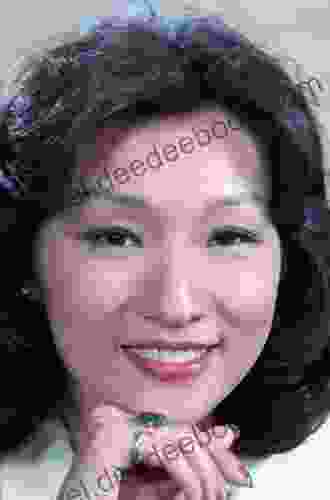
 Bryce Foster
Bryce FosterPerforming Asian American Women On Screen And Scene
The representation of Asian American women...
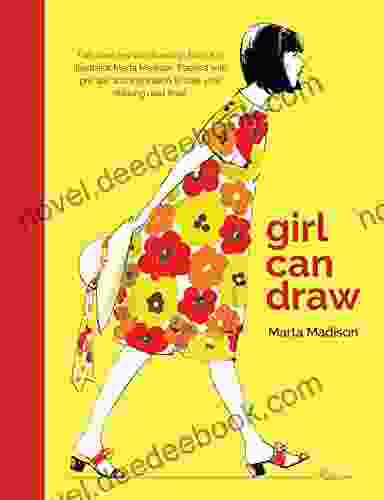
 Frank Mitchell
Frank MitchellGirl Can Draw: A Spirited and Inspiring Play by Joe...
Prologue In the realm of...
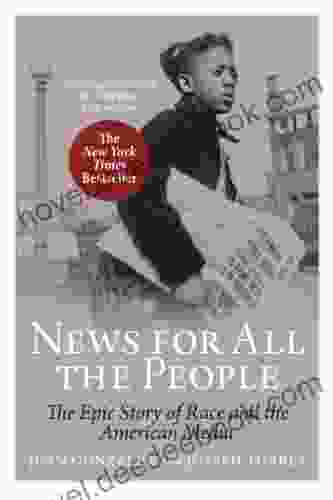
 Marc Foster
Marc FosterThe Epic Story of Race and the American Media: A Journey...
From the Shadows of Slavery to the Dawn of...

 Demetrius Carter
Demetrius CarterThe Ultimate Guide to Hiking West Virginia: Discover the...
West Virginia, often referred to as...

 Isaiah Price
Isaiah PriceThe Ten Step Guide on How to Become Famous: Unleash Your...
In the captivating world of entertainment...
4.5 out of 5
| Language | : | English |
| File size | : | 4378 KB |
| Text-to-Speech | : | Enabled |
| Screen Reader | : | Supported |
| Enhanced typesetting | : | Enabled |
| Word Wise | : | Enabled |
| Print length | : | 328 pages |


